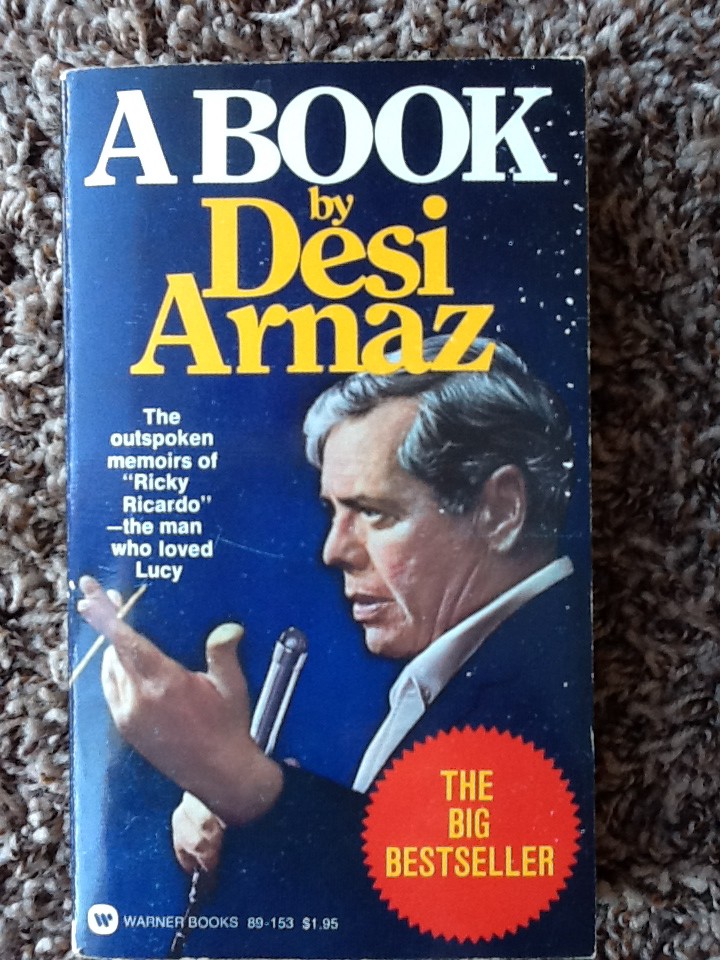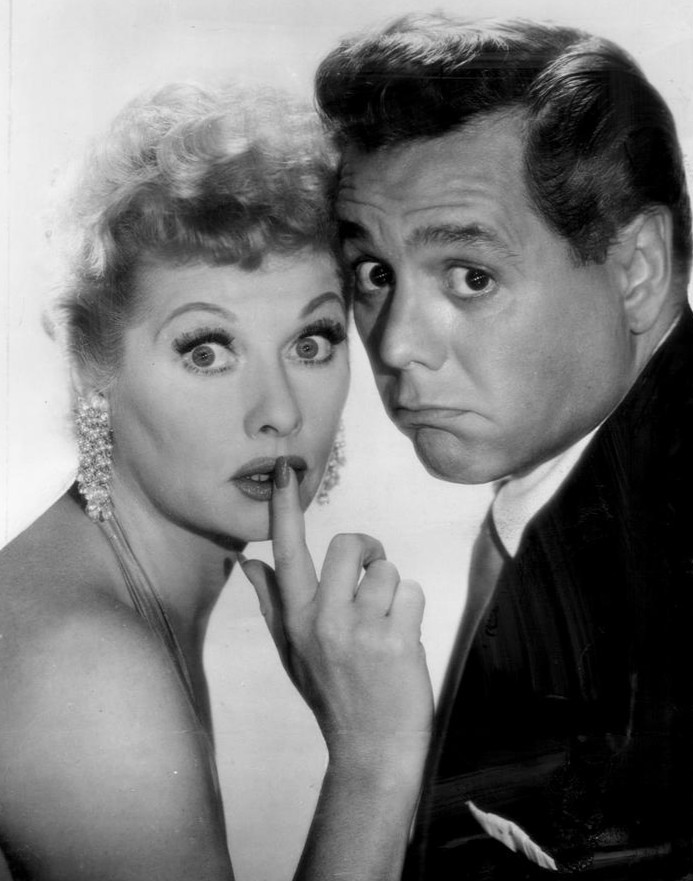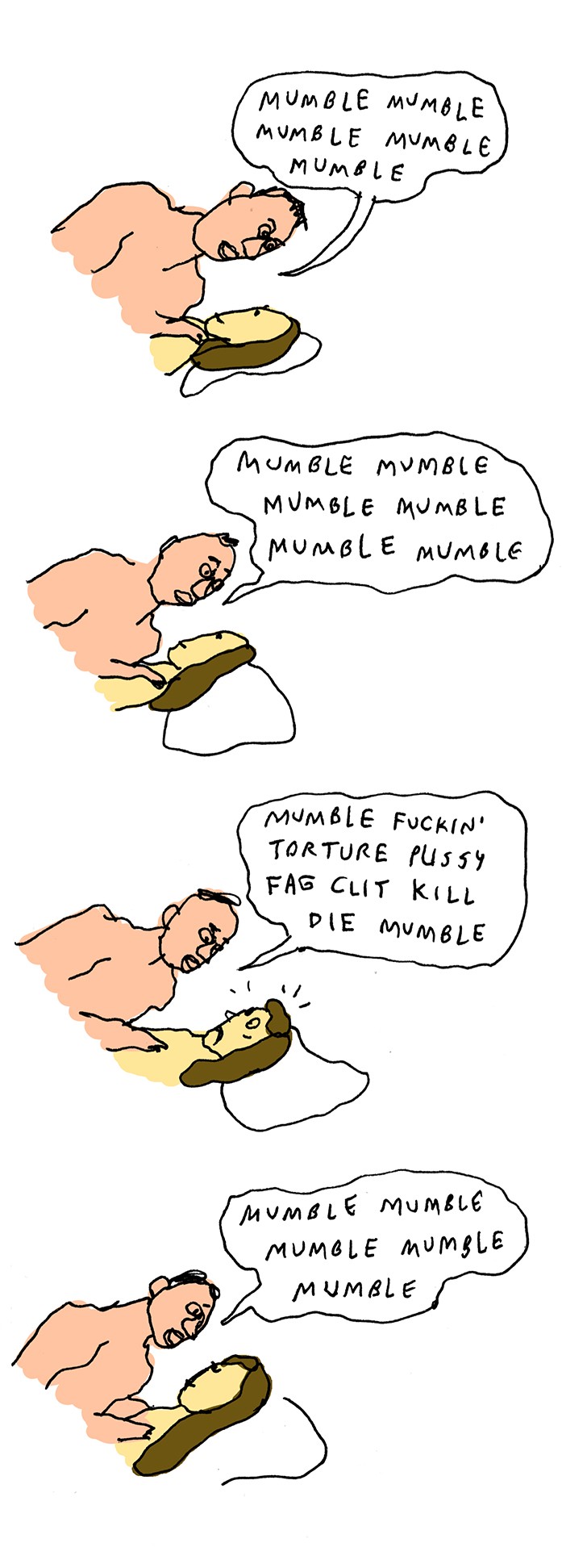The Last Night at the Trump Taj Mahal
“He’s not the worst. Wait’ll you see what comes next.”

“Trump is nobody,” said Juliana Lykins. It was Friday, October 7th and at the Pic-a-Lilli Pub off the boardwalk in Atlantic City, New Jersey. Lykins moved to Buck’s County, Pennsylvania in 2013 to run a farm, but she does marketing for small businesses and was in town picking up some checks from clients. “Down here, he is nobody and he doesn’t mean anything. He’s a shitty name on a building that fucked over poor people.”
According to Lykins, New Jersey’s first seaside resort town was about thirty miles north of Atlantic City. A tiny, windswept place called Tucker’s Island, it seems notable mainly for the bad luck that befell its residents. Children died in unusually large numbers and houses fell into the sea as the island steadily shrank. By 1952, it had disappeared completely.
When I left New York that afternoon, it was warm and the sun was out. In Philly a guy bummed a cigarette off of me and then burped the alphabet, which I think is Philly for “Thank You.” By the time I got to Jersey, the hot mic recording of Trump and Billy Bush had been out for hours and high-ranking Republicans were starting to jump ship. It was the last weekend of the Trump Taj Mahal and Atlantic City had a little less than a month to come up with a budget agreement that would avoid a state takeover.
“Burn it down,” Lykins told me, when I asked what she thought about the city’s financial future. I laughed, but she just took a bite of her buffalo roll and chewed evenly. “I hope it worse than defaults. Yeah, I think we should burn it to the ground. Last pirate on the island is king.”

The Trump Taj Mahal opened twenty-six years ago, on April 2, 1990. By now you’ve probably seen the GIF — Trump standing next to a tacky magic lantern, waving in the direction of the Showboat casino. Financed with junk bonds that carried impossibly high interest rates, the Taj had financial problems even when Atlantic City was booming and quickly sank when casino revenue began to dry up. Trump’s close friend, Carl Icahn, bought the casino out of bankruptcy court in 2014, but refused to reinstate workers’ healthcare and benefits, and since then he’s been locked in a battle with UNITE Here Local 54, which represents about 1,000 employees.

Like Trump, Carl Icahn grew up in Queens. The son of a failed opera singer, he’s in the habit of writing open letters on CarlIcahn.com to his casino employees, telling them that he, a billionaire frequently described as “ruthless,” has their best interests at heart and their union is what’s really screwing them. On August 3 of this year, it was announced that the Taj Mahal would be shutting down after Labor Day. Icahn claimed the union had “single-handedly blocked any path to profitability.”
“This was a great job for a long time,” said Christine Condos, a cocktail waitress who’s worked at the Taj Mahal since its opening day. “For people like waitresses, bartenders, housekeepers, bellmen, cooks. I mean this was a job where you could raise your family, provide benefits for them. Icahn talks about the spoiled people with the nice cars — -he’s talking about the floor guys. And I’m not saying they were spoiled! I’m saying they did a job, for which they were paid.”
By the time the casino closed, the Taj Mahal strike had lasted 102 days, the longest in Atlantic City’s history. “Haven’t had a raise in twelve years,” said Condos. She led me down to the boardwalk, where the union had set up tents and were holding the picket line in shifts. “[Icahn] was just using us as a laundromat. I went back to school, I got my degree. I’ll be okay, but there’s people — when we started here 27 years ago there were no computers. Some of these people [have never made] a resume.”
On one of the Taj Mahal’s boardwalk columns is a makeshift memorial to Esau Ivon Madrid, a cafeteria attendant who died of a heart attack a few weeks into the strike. According to union officials, Madrid was sending about eighty percent of his income to his children in Honduras and didn’t qualify for Medicaid. Gregory Natale Sr., a bartender who’s worked at the Taj since 1990, takes fourteen pills a day after he had a heart attack at his work station in 2012. Condos is a cancer survivor.
Unions have been a mainstay in Atlantic City’s casinos and they’re becoming increasingly prevalent in New York City hotels, but generally speaking, service and hospitality jobs that provide benefits are pretty hard to come by. According to the U.S. News & World Report, seven out of ten of the lowest paying jobs are in food service, and it’s not an industry that gets easier as you age, especially for women. It doesn’t matter how good you are at your job — getting hired as a cocktail waitress past forty is nearly impossible. A union is your best chance at survival, let alone stability.
“I’m a one-trick pony, I’ve been in the casino business thirty years,” said Curtis, a dealer at the Taj Mahal. He’s been offered a job in Maryland, but, reluctant to move, he’s working for a driving company at the moment. Many are considering moving to Maryland or Philadelphia as the threat of casinos opening in North Jersey looms. According the Chicago Tribune, Atlantic City has already lost 11,000 jobs due to casino closure since 2014. “When we lost our health care we lost everything,” Condos says. “I know the message is, ‘Oh, we won, he’s shutting down.’ No, he won.”

When the Taj first opened Trump famously called it, “the eighth wonder of the world.” When it was busy it looked like a weird, gaudy mall, but abandoned it finally had a certain romance — somewhere between Roman ruin and chill funeral home. “Management, like everybody else, gave up a long time ago,” said Curtis. “Place is run down; insects, mice. They just let it go.”
At the center of the building, three enormous chandeliers hung over a golden elevator. The only person in sight that day was a woman in an Ocean City, Maryland sweatshirt, who put her cigarette out in her drink and spat on the floor. A security guard stood stared blankly at a Wonder Woman game. Inside the casino newsstand, they were still selling Trump t-shirts and bobbleheads.
The boardwalk is especially quiet in the off season. Without ambient noise, all that could be heard were ads and music, piped out from a casino or a bar or a Cash-for-Gold place. Televisions along the railing kept playing an abbreviated, rockabilly cover of Springsteen’s “Atlantic City” that obfuscates the fact that the actual song is very sad. Outside the front entrance to the Taj Mahal, a bunch of severed fish heads were scattered around the sidewalk. They didn’t seem prominently displayed enough to be the work of protesters, they were just sort of there.

As an organization, Local 54 is strongly anti-Trump — according to Eater they’ve recently launched a boycott of his businesses — but internally there’s more ambivalence. There are a few vocal Clinton supporters, but the vast majority seems quiet and worried. “I mean he got a lot of people to vote,” said Pedro Martinez, a room-service cook, of Trump. Martinez has worked at the Taj Mahal for ten years and used to play hide and seek there as a kid. “All of my family, they’ve never voted before, now they have to ’cause they don’t want him to win.”
“We’ve reached out to Trump many times,” Christine Condos told me. (New Jersey Senators Cory Booker and Steve Sweeney have both supported the strike, as has Hillary Clinton.) “We think that if your name is on a building, you would want your name off that building. Or you would wanna do something about it. You’re the guy who came down here and did this. You showed other people — you gave them an avenue and a map — to do this to the middle class.”
I was introduced to three different people over the weekend, each of whom I was assured was Mister Atlantic City. As in, “Oh, you gotta talk to this guy, he knows everything.” One was a bartender, one was a limo driver, and one of them I think just hung out on a bench most of the time. None of them was voting for Trump, all of them agreed the issues he’d been campaigning on were insane, but as far as his effect on their hometown — they shrugged.
“I mean yeah, he had some bankruptcies,” said one Mr. Atlantic City, a bartender at the Chelsea Inn. “Bankruptcy is a way of life here.”
“He’s not the worst,” warned another. “Wait’ll you see what comes next.”

The last night of the Trump Taj, a Bon Jovi cover band played on the boardwalk across from the picketers. No one seemed to know who was responsible for booking the band. It wasn’t organized by the hotel or the union and frankly it seemed very cruel. These people were all about to lose their jobs, what kind of monster would make them listen to Bon Jovi.
Inside the casino, the debate began, playing on mute over the handful of gamblers inside. No one seemed to care. Someone had set up a flatscreen TV and the strikers were huddled around it, watching Trump squint into the camera. A man dressed as Neil Diamond walked up, wearing bell bottoms and a turquoise, sequined shirt. “It’s just such a small wig and I have such a big head,” I heard him tell someone.

They were with Triumph the Comic Insult Dog, whose handlers were responsible for the Bon Jovi cover band and the TV. He talked to some strikers and made a joke about a toilet. (“The Oval Office” was the punch line.) Off to the side, Neil Diamond checked his hair in the mirror. The strikers mostly just looked cold, but eventually they started laughing and the dog’s handlers began trying to recruit a group of bros who were walking down the boardwalk. Reluctant at first, they were won over pretty quickly. “We’re gonna be on Conan, dude!” They talked to the dog.
At around two in the morning, with four hours left until the closing I tried to find a place in the casino to get a beer. People seemed to have drinks, but it wasn’t clear where they were coming from. Two women sat on the steps, holding plastic wine glasses and laughing. At what looked like it may have once been a bar, a man was watching the circle of televisions, all of them playing ads for missing girls.

As of 5:59 a.m. on Monday, October 10, the Trump Taj Mahal shut down, and 2,800 people lost their jobs. No one I spoke to believes it will stay closed though; they’re convinced Icahn is just waiting until next summer, when he’ll open it up as a non-union facility. Taj Mahal management denied this, although workers were doing repairs on the facade even on its last day. When I left for the bus station, about two hundred members of Local 54 were pressed against the doors on the boardwalk, chanting “We’ll be back.”
Content Cast
Finally, someone makes sense of Peter Thiel

It was announced this week that PayPal co-founder and billionaire investor Peter Thiel decided, at this point in the presidential campaign, to donate $1.25 million in support of Donald Trump. It was a polarizing choice if you can believe it. In Silicon Valley, a lot of people aren’t sure what to do about this guy.
Thiel’s critics say this seems like the start of a pattern of behavior. A few months ago, Thiel was making headlines for privately bankrolling Hulk Hogan’s lawsuit against Gawker, the culmination of which was the site’s shuttering in August. Should it be this easy for privately wealthy individuals to influence our justice system? Our political process? And, less importantly, what does it say about the tech industry if one of the main dudes seems so… sinister and bad?
Partners have started pulling out from working with Thiel’s businesses, publicly citing creative and ethical differences, but other people’s feathers are less ruffled. “Who are we to care what a billionaire does with his vast hoard of money in a capitalist economy?” they ask. It’s tough to say.
Luckily, the first episode of Casey Johnston’s podcast, “Destination Content,” tackles these exact issues, and frankly, I’m inclined to agree with her.
Make sure you stick around for her review of the Soylent Food Bar at 3:20.
'A Book' by Desi Arnaz (1976)
The first thing you notice about “I Love Lucy” after it’s been off your radar for many years is how damn good it is. The second thing you notice, if you can listen past Lucille Ball’s earsplitting tantrums and look past her eye-splitting mugging, is how good Desi Arnaz was.

I completely missed Arnaz the first time around, so I paid attention to him a few years back, when my daughter and I were plowing through the series. What he was doing on-screen was deceptively complicated: holding his own against Lucille Ball, building a sympathetic killjoy character, making you believe he would never divorce his lunatic wife, and keeping a straight face, sometimes while unleashing a logorrheal burst of Spanish. Once the actor had learned not to say “Hello?” before bringing the prop telephone to his ear, he was a consummate television performer.
Arnaz was also a pro when it came to his best-selling autobiography, A Book, which was published in 1976. Two years elapsed between the time Arnaz told his story to a recording device and the time he and his amanuensis completed the rewrites, and the result is a funny, free-flowing narrative that reads like Arnaz shooting the breeze on a talk show (albeit on cable — I counted twenty-odd f-bombs). Beyond its title, A Book has a fabulous meta aspect that gives the reader the persistent sense that there’s no joke Arnaz isn’t in on. When he says “This reminds me of a story about Greer Garson and Jimmie Durant,” you know he knows this is a showbiz cliché.

Nothing about his life was cliché, though. Arnaz was born Desiderio Alberto Arnaz y de Acha in 1917, in Santiago de Cuba, where his father was a three-time mayor and later a congressman; his grandfather on his mother’s side was a founder of the Bacardí rum company. That his paternal grandfather was a philanderer Arnaz treats matter-of-factly: “Having two houses and two sets of children was very common among Latin men of means, and Latin women understood this and didn’t make a fuss about it.” Between this attitude and the Bacardí connection, you wish you could have warned Lucy.
When the Batista revolution came to Cuba in 1933 and overthrew the Machado administration (for which Arnaz’s father worked), the family lost everything. Arnaz’s mother hid with relatives while he and his father fled to Miami to try out the fabled American dream. They ended up living in a rat-infested warehouse, where they attempted to get a decorative-tile import business going, but the tiles kept breaking. At one point the younger Arnaz cleaned canary cages to make ends meet. In the midst of poverty, he found pockets of joy: “I’ll never forget those gorgeous nights on the beach, with the moon over Miami. We ate and drank, sang and played, and screwed and screwed.”
Arnaz plinked around with a guitar, an instrument at which Cuban men were encouraged to be proficient for serenading purposes (“You would have a hell of a time carrying a piano,” he wrote). In 1936, he joined a small-potatoes Miami rumba band that played in town. When Spanish rumba king Xavier Cugat offered him a job, Arnaz agreed to join him in New York as soon as he finished high school. He was bedazzled by the wattage at a Cugat show that he was part of in Cleveland: “The stars were Johnny Weissmuller, Eleanor Holm, Buster Crabbe, Cugat, and the Cuban birdcage cleaner.”
After a six-month apprenticeship, Arnaz decided to try fronting a band in Miami, where he put together a rumba group and introduced a signature Cuban dance, the conga line; it became a national dance craze and his calling card. (The gossip columnist Walter Winchell would dub it “the Desi chain.”) But Miami was a small pond, so Arnaz moved back to New York, where the night was his life. He squanders few words on his fling with the leggy pinup gal and movie fixture Betty Grable but spends half a page describing a high-class whorehouse, where he kept company with the madam “and her girls,” who “were my friends, and then some.”
Since this was the American dream that Arnaz was trying out, it was only natural that one day he learned that Rodgers and Hart (“Who?”) wanted to speak with him, as did the legendary theater director George Abbott (“Who’s he?”). Without ever having seen a Broadway show, Arnaz was cast in one: Too Many Girls (“Our whole show was about college kids, football, and screwing”). The first-act finale was rewritten to accommodate his conga line, which was finally taking him somewhere.

In one sense, the fun stops when Lucille Ball shows up about a third of the way into A Book. Arnaz meets her in Hollywood, where they will costar in the film version of Too Many Girls, in which Arnaz was to reprise his theatrical role. From the start, Arnaz and Ball were crazy-jealous and volatile. Arnaz writes, “In later years Lucy would say, ‘Too Many Girls was not only the title of your first show, it is the story of your life.’” When they got hitched in 1940, their friends gave the marriage two weeks.

The couple continued to tread water professionally. Ball reported for B-movie duty (e.g., A Girl, a Guy, and a Gob) and Arnaz did the odd go-nowhere picture (Four Jacks and a Jill), although he was hopeful about the semi-persistent rumblings around town that he was going to be the next Rudolph Valentino. He lost at least one role because of his accent, which three months with an elocution coach could not dismantle. Without much else to do, Arnaz joined the army once his citizenship came through. When he got out two and a half years later, in November of 1945, he reported to MGM, where he was still under contract — rumor had it they needed a Latin lover for an Esther Williams musical. But the role had already been given to the other next Rudolph Valentino: Ricardo Montalbán (more bewilderment from Arnaz: “Ricardo who?”).
Defeated, Arnaz returned to music, which could only mean hitting the road. The geographic distance between Arnaz and Ball fed the already sky-high flames of jealousy: “I would protest that I never fooled around with people I was working with. To which she would answer, ‘Hah!’ But it was true, most of the time, anyway.” Arnaz and Ball seized on the idea of costarring in a television show; they thought being together could save their marriage.
When “I Love Lucy” premiered in October of 1951, the public bought the then-frightful notion of an all-American gal married to a Cuban dude, and scatterbrained Lucy and mush-mouthed Ricky ruled the airwaves for the better part of a decade. Arnaz writes that when the New York Times Magazine asked him to divvy up credit for the show’s success among cast and crew, he said that Ball was ninety percent of it.
I don’t think she was. After “I Love Lucy” ended, Ball spent more than a decade in a couple of unspectacular sitcoms named for her, many episodes of which had the advantage of being penned by “I Love Lucy” writers, and these two shows were worse than “I Love Lucy” by a good half. What was missing was Arnaz. He had had creative control of “I Love Lucy” as executive producer and president of Desilu (Ball was nominally vice-president), and he’d made many clear-eyed decisions. He originated the three-film-camera technique for television shows in order to capture authentic audience reactions, and he insisted on verisimilitude on the set (meaning a real eight-foot loaf of bread came out of Lucy’s oven). But beyond Arnaz’s role as overseer, it’s utterly impossible to imagine that I Love Lucy would be as good a show without his on-screen presence. He added dimension to what might otherwise seem today like a very funny sitcom about a typical (if unusually loud) middle-class American couple at midcentury.

In its last chunk, A Book loses ballast, not unlike Arnaz’s marriage. His recollections of a succession of whiz-bang business maneuvers are what I imagine The Art of the Deal reads like on a good day. During this period, Arnaz was under terrific pressure — playing Ricky Ricardo, producing the show, running Desilu — and his health was suffering. He told his father, “I was happier cleaning birdcages and chasing rats.” He wasn’t seeing much of his kids and was drinking too much: “I guess if I had learned the meaning of moderation and had been able to practice it, the Desilu monster we had created and our marriage might not have been so hard to cope with.”
In 1961, a year after her divorce, Ball married the comedian Gary Morton. Yes, she had moved on, and quickly, but in a Barbara Walters interview from 1977, conducted during Ball’s Phyllis Diller period, she was conspicuously still peeved at Arnaz: “I married a loser before…He was brilliant. But he had to lose…Everything he built, he had to break down. And he still claims he’s the same way.”
Toward the end of his life, Arnaz got sober. Not long afterward, in 1986, the lifelong smoker died of lung cancer, at age sixty-nine; this was one year after he lost his by-all-accounts cherished second wife, Edie. Ultimately, A Book is about nothing less than the American dream and one’s right to thoroughly fuck it up once it’s realized, and then maybe be permitted to get a little glimmer of it back, if only for a short time.
Nell Beram is coauthor of Yoko Ono: Collector of Skies and a former Atlantic Monthly staff editor.
Watch "Crashing"
What To Watch During The Debate Tonight
It’s not the debate.

If you are somehow unable to do anything but watch television tonight I have a solution that will save you from the debate (if you have Netflix). It is the British series “Crashing,” which was created by Phoebe Waller-Bridge, who everyone is talking about right now because of her other show, “Fleabag.” She is pretty clearly a major talent who will shape a certain kind of comedy going forward. She is also a remarkably winning performer, but that is less noticeable here because of the strength of the ensemble. “Crashing” is about a group of people who live in a decommissioned (the British say “disused,” but of course they would) hospital in exchange for cheap rent. (This story about property guardians should give you more than enough background.)
There’s nothing groundbreaking or even innovative about the show; rather, the enjoyment comes from watching the characters make the same mistakes people their age have always made, but in our new era of diversity and trying economic times etc. I am not trying to make any great claims for the series as anything other than entertainment, but I will say this: There are six episodes that are approximately 22 minutes each. If you start watching at 9 P.M. you can get through the whole series and avoid both the debate and the postgame show completely and when it ends you will feel good about yourself rather than wanting to die. As entertainment, it’s worth the time. I am someone who has very little tolerance for anything that is supposed to be amusing these days, because everything feels fake and the little laughter you are able to expend is actually something your body puts out to keep you from remembering that what you actually want to do is weep. “Crashing” will keep you amused the whole way through, which might make it the only thing on your screen worth looking at. (Assuming you haven’t seen “Detectorists” yet.) Anyway, the important thing is that you not watch the debate tonight. I would also tell you to stay off Twitter but even you are not so stupid as to need that warning anymore. Good luck.
Let the Holiday Album Sales Begin
Soundscan Surprises, Week Ending 10/13
Back-catalog sales numbers of note from Nielsen SoundScan.

The definition of “back catalog” is: “at least 18 months old, have fallen below №100 on the Billboard 200 and do not have an active single on our radio.”
Garth Brooks! Remember that guy? Old-record-buyers sure do. He’s releasing a new album on November 25th, which is also my dad’s birthday. I will not be getting him a Garth Brooks album. Interesting question, actually: do people gift each other individual albums anymore? You used to be able to buy someone a CD or a tape or a vinyl record, and while you theoretically still can, you’d have to make sure that person had all the right equipment to play it. These days we just give each other iTunes gift cards, right? I doubt you even make playlists anymore.
Metallica is still going really really strong, with five out of twenty-five of the top back-catalog positions. The weekly sales, in order: Metallica (5,136 copies), Master of Puppets (2,597 copies), Ride the Lightning (2,476 copies), And Justice for All (2,496 copies), and Kill ’em All (1,930 copies). Celine Dion’s holiday album has crept into view, and Michael Jackson’s Thriller is up higher than usual—Halloween boost, methinks?
A couple of Bob Dylan records made it onto the charts, but not terribly high up, after news last week that he would be awarded the Nobel Prize in Literature. You’d think that sales would be higher for news of that magnitude, but everyone who’s gonna buy Dylan already owns it, so, not a lot of needle movement there. Elvis has two Christmas albums on the charts. I really can’t tell how many of them there are in total, but that seems like a a lot of White Christmases. Hinder is an American rock band from Oklahoma that I’d never heard of. They’ve rotated through three lead singers, one of whom auditioned for The Voice a few weeks ago and got all four judges to turn around (the clip is worth clicking through for Miley Cyrus’s braids alone).
5. BROOKS*GARTH ULTIMATE HITS 4,635 copies
37. JACKSON*MICHAEL THRILLER 1,747 copies
83. HINDER WHEN THE SMOKE CLEARS 1,313 copies
86. DYLAN*BOB THE ESSENTIAL (2014 REVISED) 1,307 copies
96. DION*CELINE THESE ARE SPECIAL TIMES 1,245 copies
171. PRESLEY*ELVIS CANMELVIS PRESLEYITS CHRISTM 971 copies
179. PRESLEY*ELVIS MERRY CHRISTMAS LOVE ELVIS 951 copies
194. DYLAN*BOB GREATEST HITS 920 copies
(Previously.)
Dirty Talk
The Adventures of Liana Finck

Liana Finck’s cartoons appear regularly in The New Yorker. Her book is A Bintel Brief. This cartoon strip is a spin-off of her Instagram feed, @lianafinck.
Lindstrøm, "Closing Shot"
Time passes slowly

You know when you have to attend some sort of event that you are absolutely dreading — the ballet, say, or a family gathering — and you steel yourself before you go in with the thought that, “It’s only three hours. People spend decades in prison for crimes they didn’t commit, you can make it through three hours,” it still only takes about six minutes before you are looking for something sharp or nooselike to help you end your misery? No matter how agonizing it is, no matter how slowly the time seems to pass, things do eventually end and then you are free to go on with your life as it was before, even if you are now slightly diminished for having stared into the abyss and shown yourself your cowardice upon seeing its face. Anyway, if there is something like that in your immediate future, for example at 9 P.M. Eastern this evening, rest assured that it will indeed eventually end. Everything does. I hope you find that as comforting as I do.
Please enjoy this video from Lindstrøm. Given what the future holds, it might be the brightest part of your day.
New York City, October 17, 2016

★★★★ The first golden honeylocust leaflets on their block were being carried away in the sluicing hose water. A woman’s sandal broke and fell as she hurried a child through the bottleneck formed by pony dumpsters on the sidewalk by the school. It seemed as if new rare detail was visible in the far distance in New Jersey, but it was just the usual detail of the near distance, rendered more remote by the haze. The true distance was all but gone. Walking face-on into the scattered sun was blinding and a little bit hot. In the pink-lit dusk, the street smelled like a summer ballpark concourse.
Well-Defined Muscle
Watching the U.S. election from Munich

The Latin adjective nervosus doesn’t mean what you think it means. Okay, maybe Latin etymology has never even crossed your mens (feminine, third declension, e.g. “mental”). But I’ve been thinking about it all day every day—from antemeridian dawn to crepuscular dusk — ever since I joined a team of lexicographers in Munich, chiseling away at a half-finished, century-old Latin dictionary.
Nervosus appears a little over fifty times in the language’s first millennium, and the majority of these examples come from ancient medical manuals, from authors like Celsus in the first century and Cassius Felix in the fifth. But the adjective isn’t used in any psychiatric nomenclature. Anorexia nervosa, for example, is a nineteenth-century coinage. Instead, nervosus describes a variety of tough, sinewy tissues: the bladder, the diaphragm, the pectorals of a horse. To be nervosus is to be “strong.” In fact, only a handful of late antique texts begin to assign the name nervositas to the peculiar collection of tough tissues that descends from the skull — that is, the nervous system.
To be nervosus is to be “strong.”
Even if we moderns might not think to describe, say, some Herculean deadlifter as “nervous,” earlier English authors were familiar with this ancient meaning. Take Herman Melville. In a chapter of Moby Dick on the harpoon, he explains how someone “needs a strong, nervous arm to strike the first iron into the fish.” And Thomas Hobbes writes that the state’s “nerves” can be found not in some wonkish policy brain trust but in its forces of “punishment and reward.”
Relaying this word-sleuthing to my colleagues is one of the many pleasures of professional lexicography. These days, though, lunchtime chatter often turns from Horace to Hobbes, from ablative nouns to the anxieties of a sovereign Trumpidency. (I suspect he would rebrand the job title on Day One.) Brexit and the continent’s own ascendant populist politics spook pan-European offices of all kinds, and Latinists in particular have had a bit of a globalist streak ever since the Augustan Age. To be sure, European academics have their own reasons to worry: political fracturing may lead to big setbacks for collaborative research well beyond lexicography. The world’s academies work better, so it seems, when the world works together.
Writing a comprehensive dictionary of the ancient West’s lingua franca, however, requires too much careful reading and scrupulous categorizing to get completely caught up in international affairs. I prefer to share my breakfast with the New York Times crossword rather than the cross words of CNN pundit panels. But as the dictionary’s resident American, I dutifully watch the debates via 3 a.m. live-stream for my colleagues, and I report every gaffe in broken German over cafeteria schnitzel. Even if I can’t alleviate their fear of uncertain global politics, I can remind them that their nervousness, at least according to the dictionary, is strength.
How To Save Print Media
What’s Black And White And Kill Me Now
Maybe newspapers should have done anything other than the thing they did that taught people to stop reading them.

If you follow media Twitter, you need someone in your life to stage an intervention. Seriously, no matter who you are or what you’ve done there is surely still a person you know who has enough sympathy — even if it is at the basic level of “as a fellow human being” — left in her heart for you that she will gather together a couple of people to tell you just how badly you are hurting yourself and others with this sick, repulsive obsession. I don’t know what dark and shameful thing happened in your past that you feel like you’re so disgusting and deserving of punishment that you will inflict a steady stream of self-importance and gross careerism (plus smarmy “insider” takes that are comical for their obviousness — and the pathetic desperation behind them), but no one should ever hate themselves so much that they put themselves through such unjustifiable abuse. You are a child of God, and all God’s children are beautiful in one way or another. None of them should be subjected to such horror.
In any event, that was not the point I originally meant to make when I started that sentence. What I was going to say was if you follow media Twitter, you will have seen, today, a debate about this piece by Politico media curmudgeon Jack Shafer.
What If the Newspaper Industry Made a Colossal Mistake?
Citing a recent study, Shafer suggests that the newspaper industry “should have stuck with its strengths — the print editions where the vast majority of their readers still reside and where the overwhelming majority of advertising and subscription revenue come from — instead of chasing the online chimera.” Shockingly, media types — who usually refrain from airing their opinions until they have spent several days digesting the arguments and coming up with considered responses — disagreed.
I dunno @jackshafer. Seems like study authors would have advised buggy-whip makers to stick with what they knew https://t.co/xHQ3EsmAPY
Shafer’s riposte was as such:
Outside of handful of newspapers, none have thrived online. I don't think they're likely to thrive, either. https://t.co/ML4aIS8CWX
Others entered the fray.
@jackshafer Yes, but is that because they were doomed by default, or because they failed to adapt?
— @mathewi
Fingers were pointed.
@TrishHepworth @mathewi @jackshafer I have said to anyone who will listen that this is the fault of the business undervaluing digital ads
— @anthony
Hinds were sighted.
@jackshafer I don't think anyone saw the online business for what it is -- only for what they wished it could be
— @mathewi
But the discussion was not fully resolved.
A process that begins with the advent of radio, not of the Web. https://t.co/iXM9Fu2P70
What is the lesson to be drawn here? Is there any lesson at all? Is the suggestion that newspaper companies would be better off treating their print editions as a resource worthy of respect (and remuneration) rather than deeply devaluing their product by turning it into poorly-designed ad-heavy garbage that even the most desperate reader is unlikely to click on simply a case of closing the barn door after the horse has left the stable, the barn has burned down, and the farmer next to you has built a bigger, shinier stable with cheaper, dumber horses that more people want to ride because they don’t understand how they’re paying for the horse, plus the barn is actually a big scam that the farmer next to you is using to disguise the fact that he’s really running an advertising business and his stable is just a magnet for easily-amused yahoos who will happily hop on his stupid, shiny horses because it’s so much more fun than struggling with the more challenging (but ultimately more rewarding) horse that ran out of your barn? (If you know what I mean.) It is impossible to say! But if we look at the newspapers who are doing it right in this new world, it seems clear that there are certain things even the loftiest of organizations can do to create value online.
11 ways to take a better food photo on Instagram
Now where was I again? Right, avoid media.
